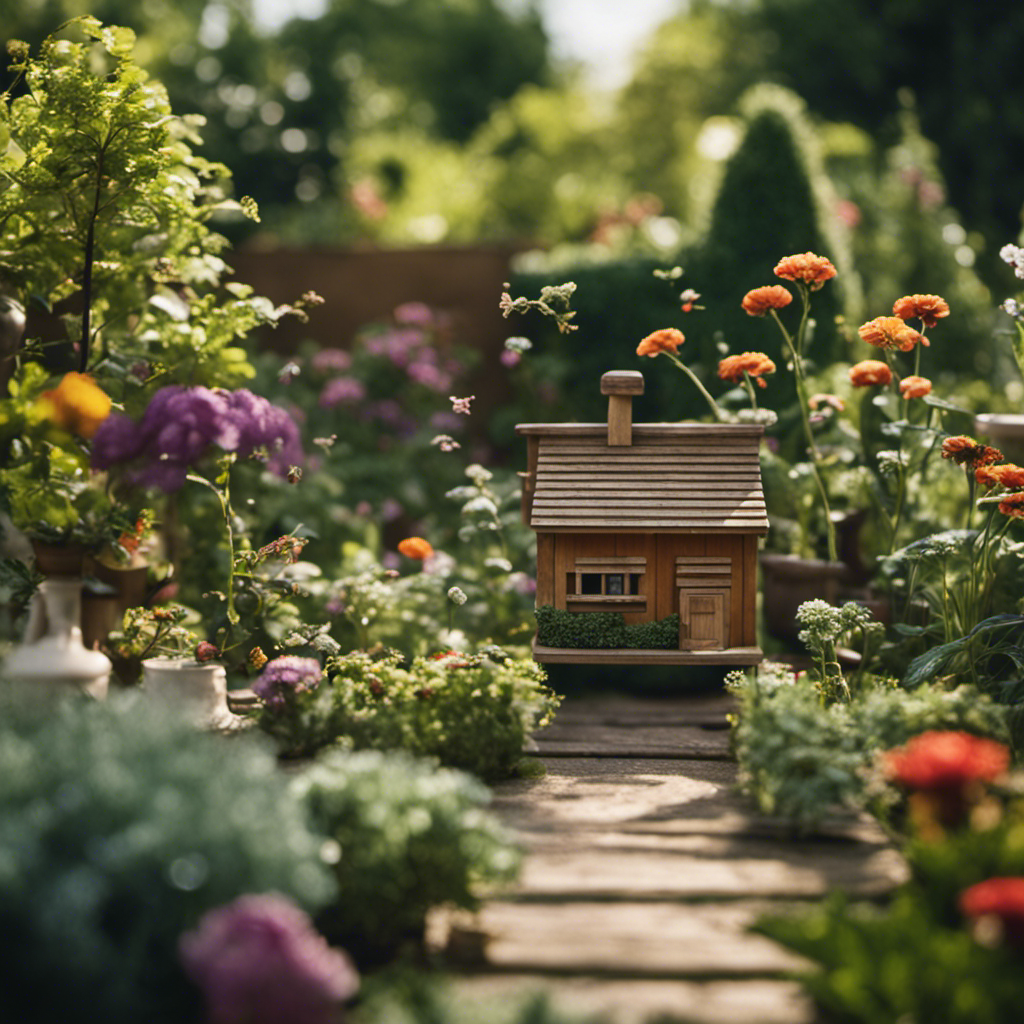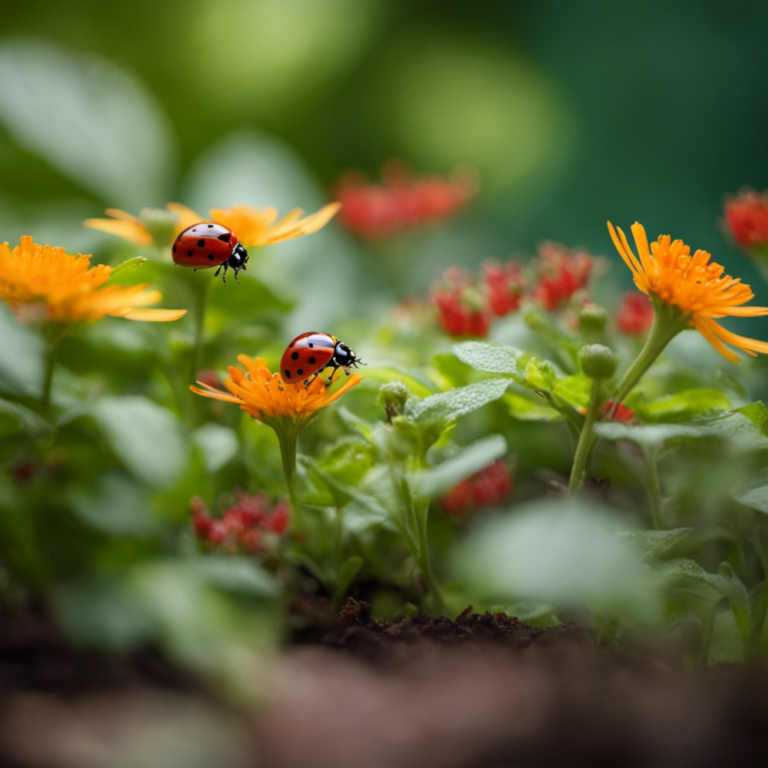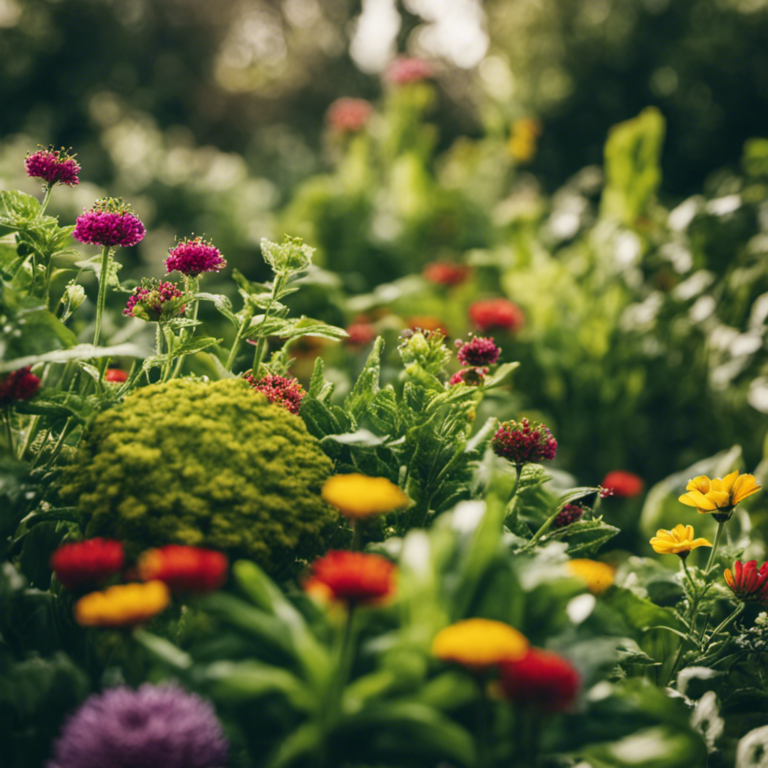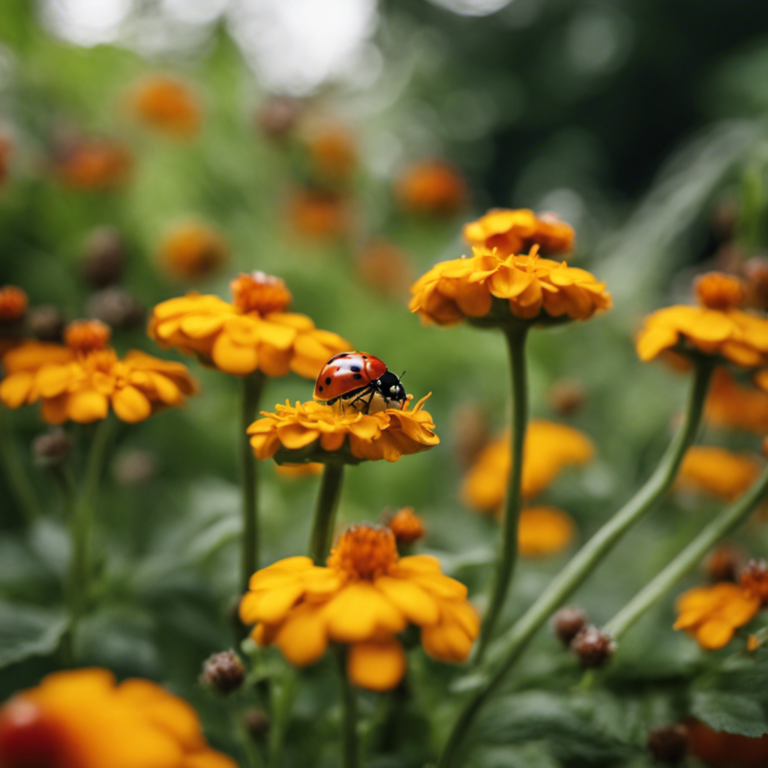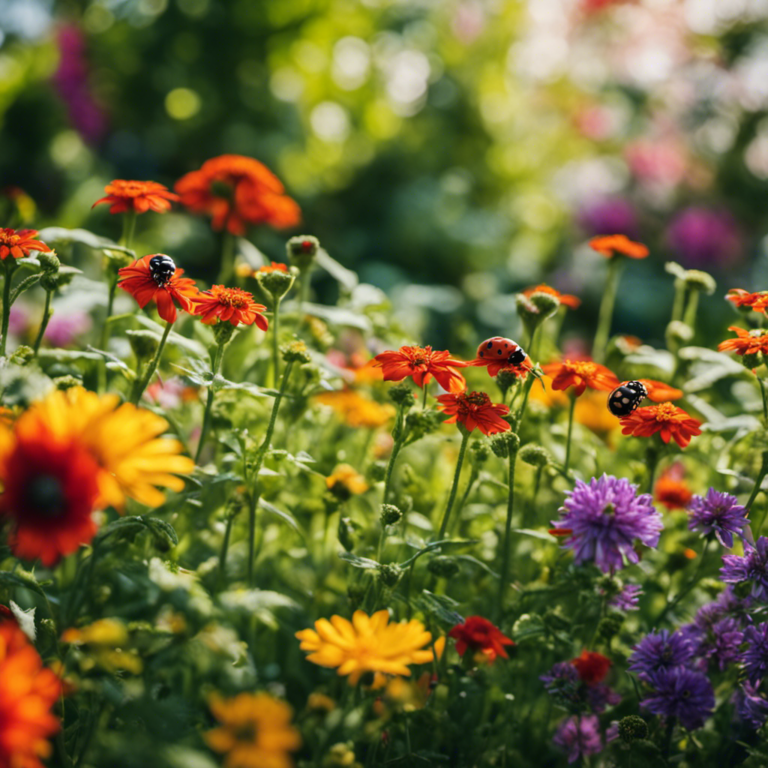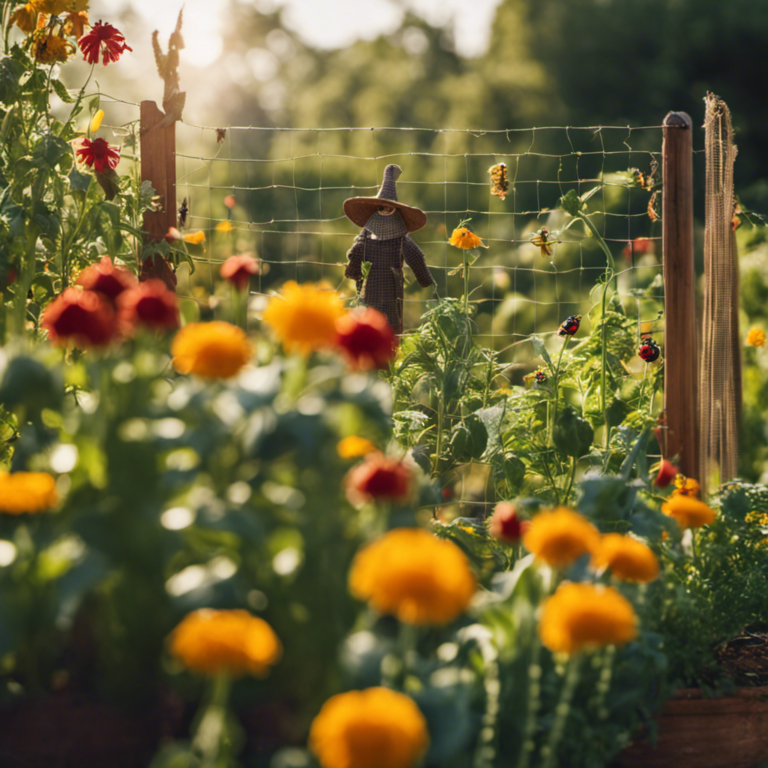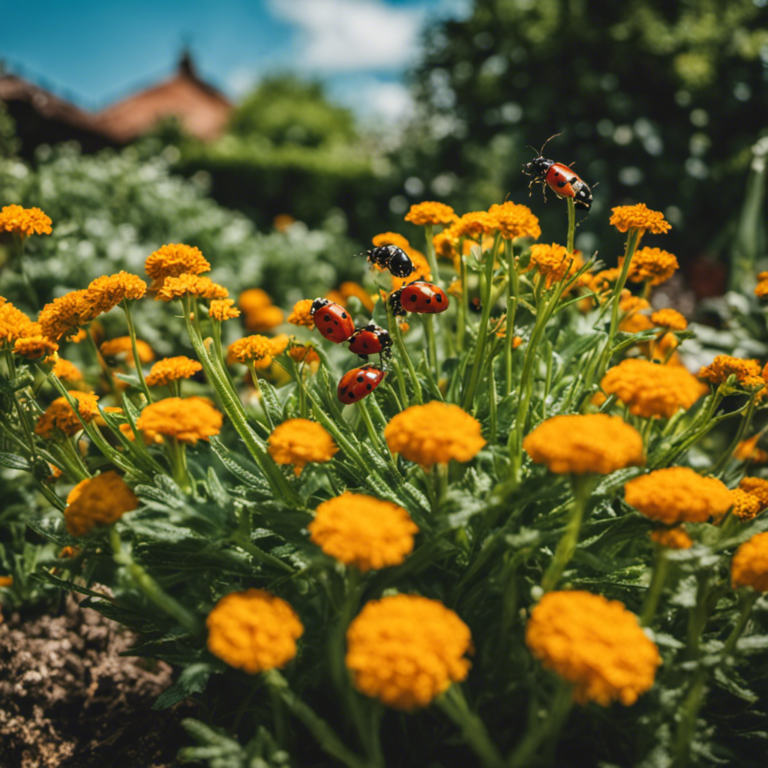Is your garden being overrun by pests? Don’t worry, we’re here to help! In this timeline guide, we’ll take you through the steps of green pest control, specifically designed for gardeners like you.
Did you know that using natural pest repellents can reduce the need for harmful chemicals by up to 80%? By implementing early prevention methods, attracting beneficial insects, and using non-toxic sprays, you can maintain a healthy garden all year round.
Let’s jump right in and take control of those bothersome pests together!
Key Takeaways
Green pest control is a crucial aspect of maintaining a healthy garden. By taking proactive measures, using natural pest repellents, introducing beneficial insects, and utilizing non-toxic sprays and solutions, gardeners can effectively manage pests without harming the environment.
The old saying, ‘Prevention is better than cure,’ holds true when it comes to gardening. It is important to take the necessary steps to keep your garden free from pests and enjoy the rewards of a thriving, eco-friendly garden.
Early Prevention Measures
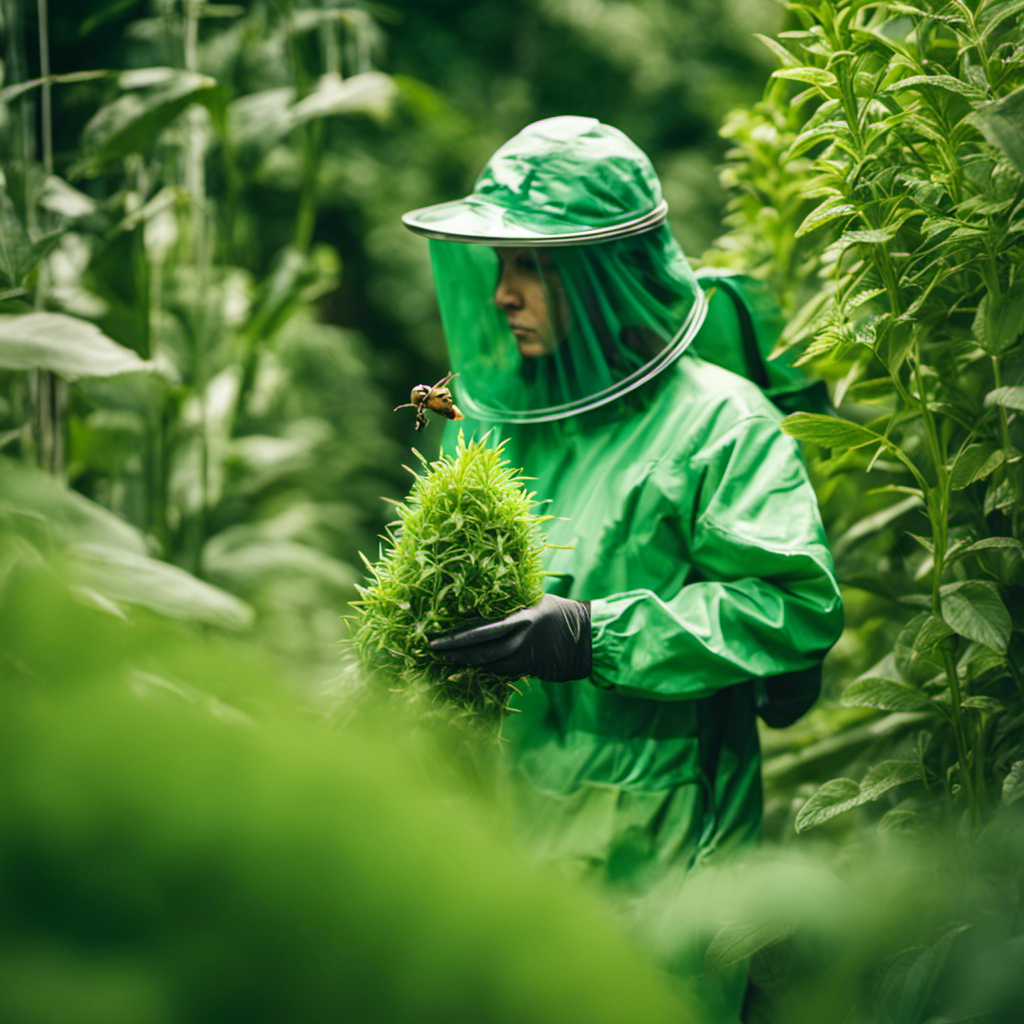
Implementing early prevention measures is crucial for keeping pests away from your garden. Integrated pest management (IPM) offers a holistic approach that effectively controls pests while minimizing harm to the environment.
By identifying potential pest problems and taking action before they become major infestations, you can maintain a healthy garden. Organic pest control is an essential component of IPM, relying on natural methods to deter or eliminate pests.
Start by practicing good garden hygiene, such as removing debris and weeds that can harbor pests. Additionally, consider using physical barriers like netting or row covers to protect vulnerable plants. Companion planting is another effective method, where certain plants are grown together to repel pests.
Natural Pest Repellents
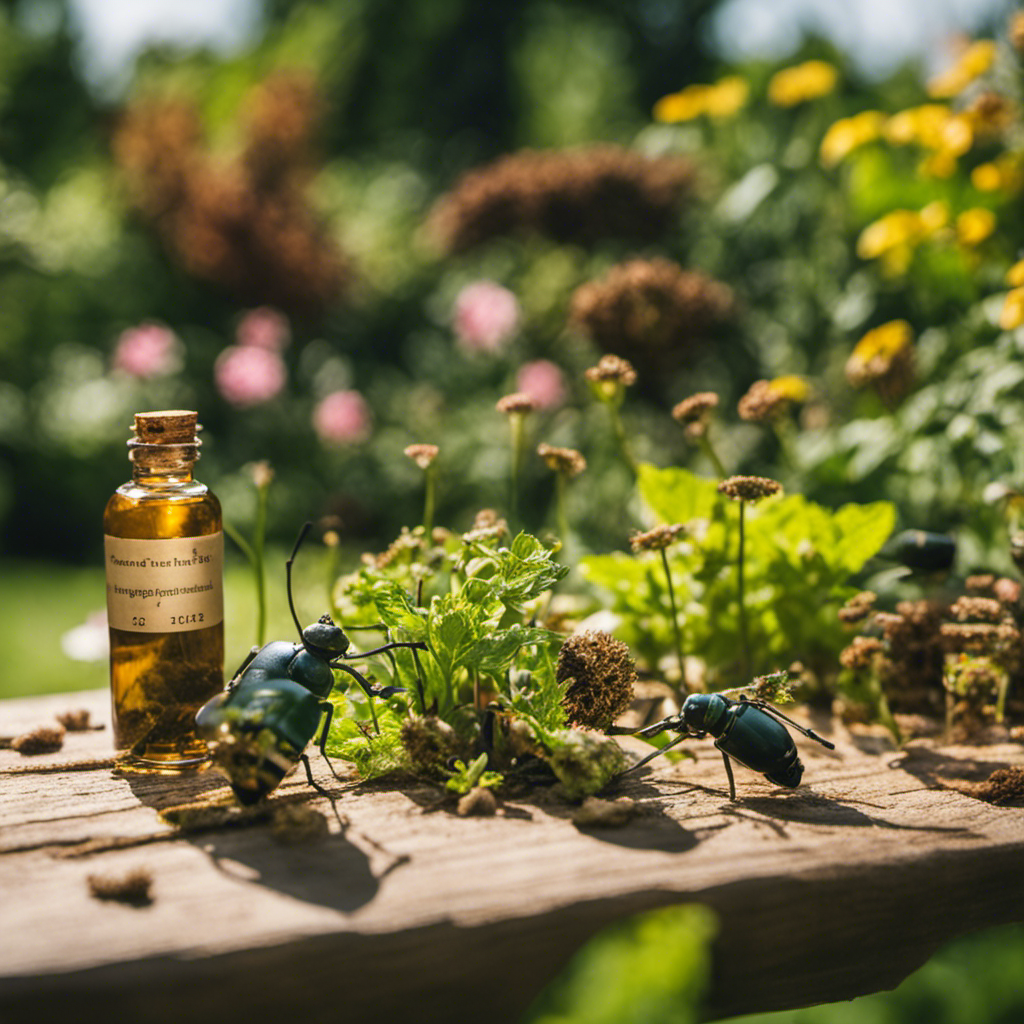
To naturally repel pests in your garden, consider using plant-based pest repellents. These organic solutions can help keep your plants safe without the use of harmful chemicals. Here are four homemade remedies you can try:
-
Neem oil: Derived from the neem tree, this natural oil acts as a powerful insect repellent. Mix it with water and spray it on your plants to keep pests at bay.
-
Garlic spray: Crush a few cloves of garlic and mix them with water. Let the mixture sit overnight and then strain it. Spray it on your plants to repel insects like aphids and beetles.
-
Peppermint oil: Dilute peppermint oil with water and spray it on your plants to deter pests. The strong scent of peppermint is known to repel ants, aphids, and spiders.
-
Onion and chili spray: Blend onions and chili peppers together with water. Let the mixture sit overnight and then strain it. Spray it on your plants to keep pests away.
Beneficial Insects as Pest Control
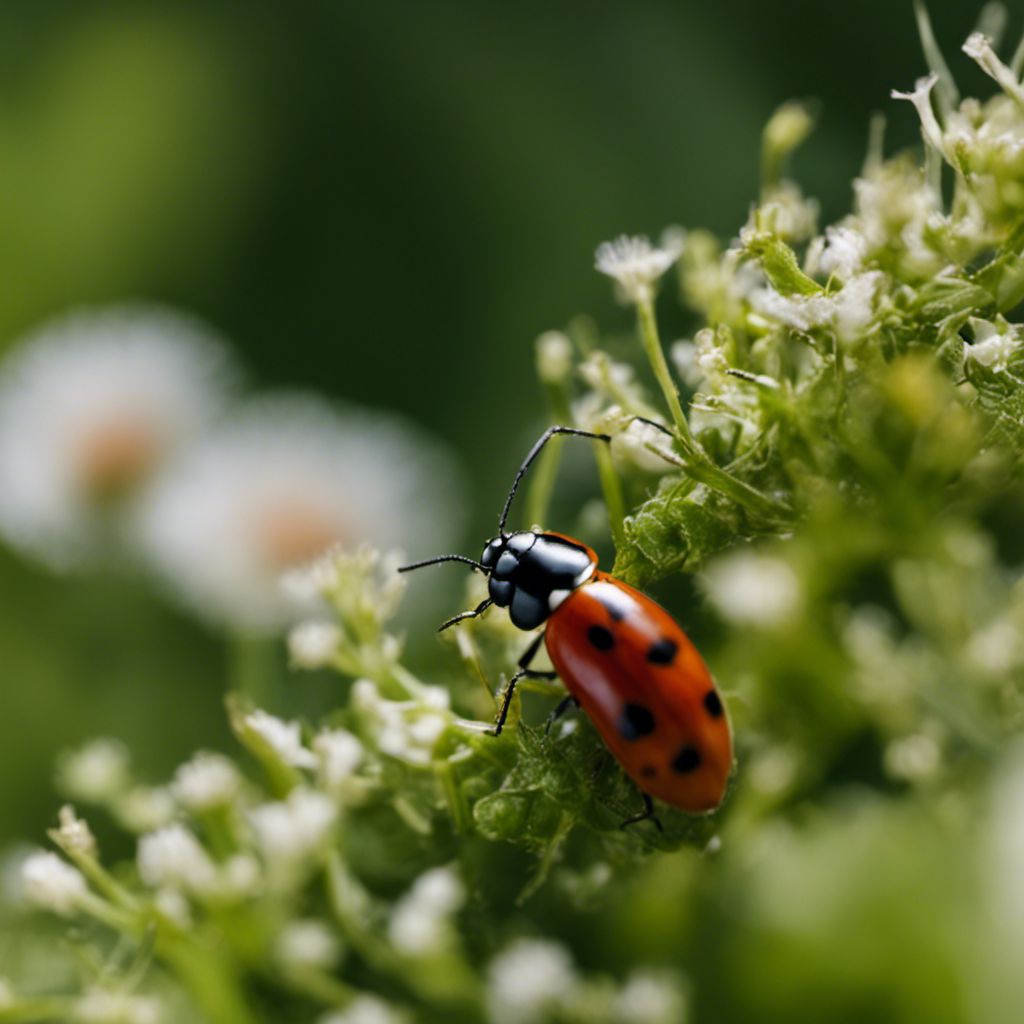
Using beneficial insects for pest control in your garden is a reliable and effective approach. Integrated pest management (IPM) promotes the use of these helpful insects to naturally control pests. By attracting and supporting beneficial insects, you can minimize the need for harmful chemical pesticides.
One way to attract these insects is through companion planting. For example, planting flowers like marigolds or yarrow can attract ladybugs and lacewings, which feed on aphids and other pests. Creating a welcoming environment for beneficial insects by providing shelter and water sources, such as birdhouses and shallow dishes, is also beneficial.
Non-Toxic Sprays and Solutions
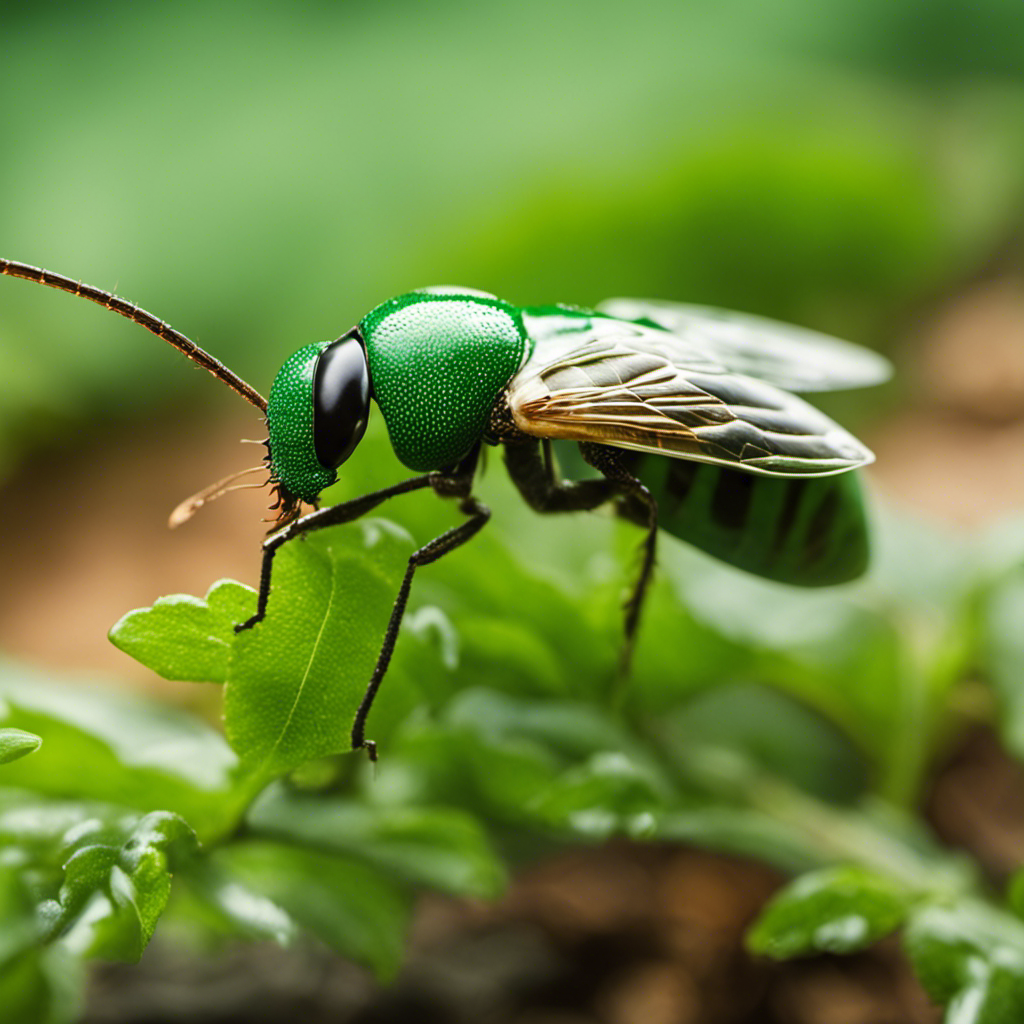
Utilize environmentally-friendly sprays and solutions for effective pest control in your garden. These non-toxic alternatives and DIY remedies can help you maintain the health of your plants without causing harm to the environment or posing risks to your family and pets. Consider the following options:
-
Neem oil: Neem oil is derived from the neem tree and serves as an effective insecticide and fungicide. It disrupts the lifecycle of pests and hinders their feeding and reproduction.
-
Garlic spray: Create a natural repellent by soaking chopped garlic cloves in water. Garlic spray can deter various garden pests, including aphids, caterpillars, and beetles.
-
Soap and water spray: Mix mild liquid soap with water to create a simple yet powerful solution for controlling soft-bodied pests like aphids, mites, and whiteflies. The soap suffocates the pests and interferes with their cell membranes.
-
Diatomaceous earth: This natural powder is made from fossilized remains of tiny aquatic organisms. When applied to the soil or plant surfaces, diatomaceous earth acts as a physical barrier to pests, causing them to dehydrate and perish.
Maintenance and Long-Term Pest Control
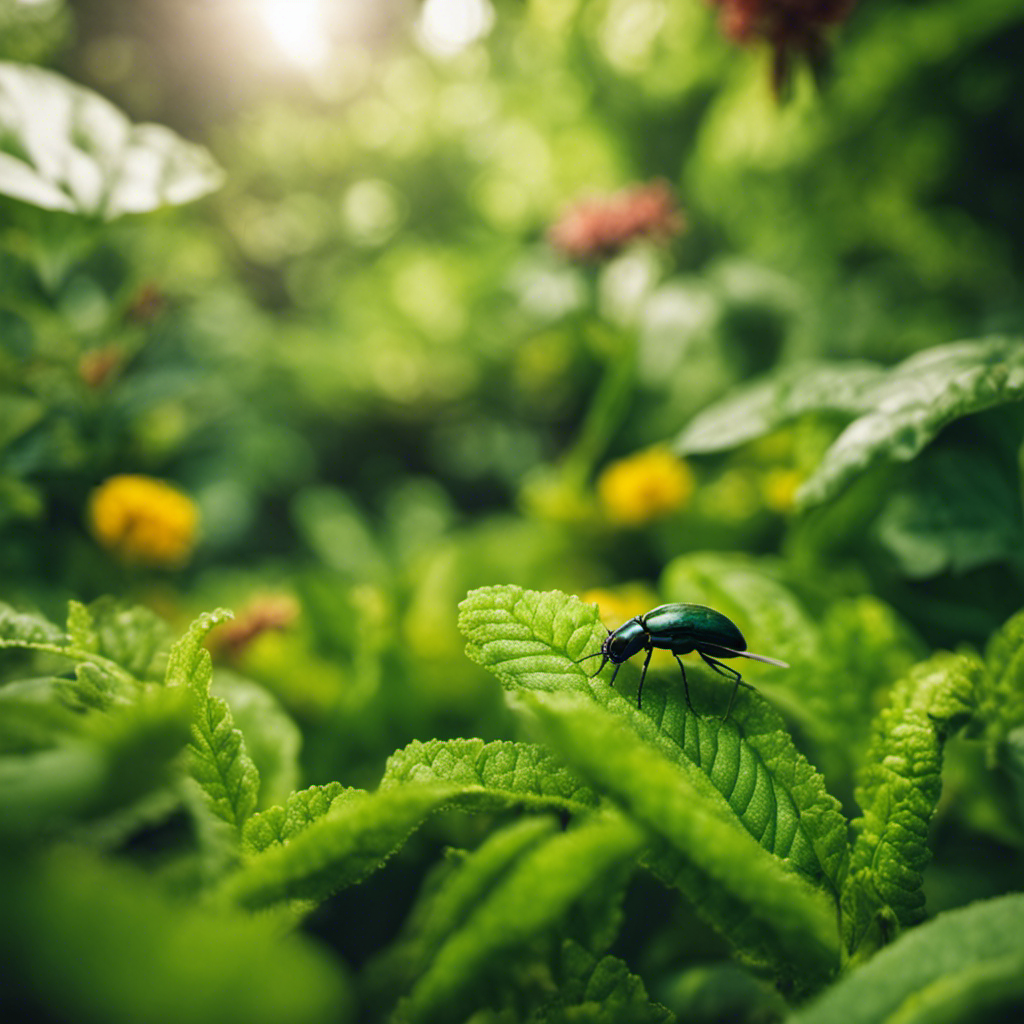
One crucial aspect of green pest control is maintaining and managing pests in your garden for the long term.
To achieve this, it’s important to adopt organic gardening practices and implement integrated pest management techniques.
Organic gardening focuses on using natural methods and products to promote plant and soil health, creating an environment that’s less favorable for pests.
Integrated pest management involves strategies such as careful plant selection, regular monitoring, and timely intervention when pest populations reach a threshold.
By practicing these methods, you can reduce the use of chemical pesticides and encourage beneficial insects and organisms that help control pests.
Regularly inspecting your garden, removing any pest habitats, and maintaining healthy plants will contribute to the long-term success of your pest control efforts.
Conclusion
Green pest control is an essential part of maintaining a healthy garden. By taking proactive measures, using natural pest repellents, introducing beneficial insects, and utilizing non-toxic sprays and solutions, gardeners can effectively manage pests without harming the environment.
Remember the old saying, ‘Prevention is better than cure.’ So, take the necessary steps to keep your garden free from pests and enjoy the rewards of a thriving, eco-friendly garden.
